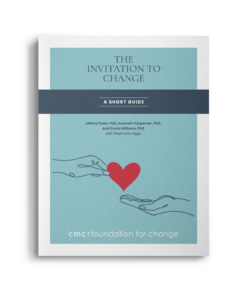The addiction treatment field, and specifically inpatient programs (or rehabs), have been in the press a lot lately. In the last decade programs have opened, closed, merged into large conglomerates and many have been noted for unethical practices that take advantage of people who use substances and their families. The opioid crisis in this country has brought many things to light, such as the failure of many programs to provide effective, life-saving medication assisted treatments, and we hope that positive changes in the treatment field will be the outcome. Until those changes consistently take hold however, if you are someone who is looking for treatment or looking for a loved one, it can be helpful to have a few things in mind as you search for the best program that fits your needs.
Finding treatment is a bit like shopping for jeans; just because something is listed as your size, it doesn’t guarantee that it will fit well. Sometimes it’s too snug, or the cut isn’t quite right. Or the fabric feels scratchy against your skin You often have to try on a few brands and styles to find the pair that is a good fit. If you or someone you love needs treatment for a substance use problem, it’s important to take the same approach. Take the time to interview several treatment providers and arm yourself with a list of questions so that you can compare and contrast them before you make your final decision.
Additionally, while it may be tempting to rush to the computer and do a search for “best rehabs” we recommend against taking this strategy. The internet is full of 1800 call services that appear to be linking you to someone who can help you find the best options. The thing they don’t tell you is that they are more than likely paid by specific programs for referrals to them and their suggestion of the best place for you will not be based on anything other than the amount of out of pocket expense you can afford or your insurance benefits.
Instead we recommend that you try and arrange a face-to-face professional assessment since substance use problems run the gamut from experimental and non-problematic to severe and life threatening. People turn to substances for a variety of reasons and a good assessment can help you identify the best course of action (meeting with a psychiatrist, behavioral treatments or maybe no treatment at all and just increasing community connection like attending self-help meetings). Be sure to ask about the qualifications and approach of the person doing the assessment (see additional comments below) since they have a huge impact on the recommendations that they will make. Once you get feedback, you can move onto exploring the following questions. And if you can’t get a good assessment, then just proceed to ask these questions of any program you are considering.
Here is a short primer for what to look for in a treatment program. Like jeans, we know that everyone has a unique fit and that there isn’t one specific treatment program or treatment philosophy that will work for everyone. The questions we are suggesting are good ones for everyone to ask and will help you find support that matches your specific needs.
What is your Treatment Philosophy?
Different treatment programs have different philosophies about how to help someone with their substance use problems. Some places adhere closely to the traditional 12-step approach, while others are open to taking a more harm reduction approach. And if you review program websites you will quickly think that every program does everything! They say they are experts in treating co-occurring issues, trauma, professionals, and effectively use every modality under the sun (e.g., CBT, MI, DBT, EMDR and all sorts of other acronyms). The reality is that many providers have realized that consumers are wanting access to a variety of services and market themselves as such.. It can be very difficult to ascertain what will be helpful to you or your loved one and a program that outlines all of these options as a way to sell the program does not guarantee they do any of the treatments effectively. So it is important to dig a little deeper.
A website may be a good way to start the process of finding a treatment program, but calling is much more informative. It’s good to ask specifically how they determine which treatment modality will be the best fit for you and how is it provided (i.e., individual sessions, group sessions or lectures). How many individual sessions do you get a week and what is the focus of those sessions. If there are groups, how many a day and how many people are in each group. And if they say something that you don’t understand or are vague in their explanations, ask them to clarify! If they can’t do it or don’t do it well enough for you, that might be a sign about how happy you will be with the treatment program overall.
Who provides the actual treatment? What are their credentials? And how are they supervised and trained.
Treatment programs differ widely in who on staff has actual day-to-day therapeutic contact with clients. As you interview programs, ask who will be running the groups and providing the individual therapy, because it’s not always who you think it is! Many programs are staffed largely by counselor level providers and some states require only a high school degree in order to be eligible for the certification. Many people with this level of training are talented and have other degrees or specialities that are helpful. Others however are ill-equipped to treat the range of issues that are often part of the clinical picture. Most programs say they treat co-occurring mental health issues and yet they have few on staff with doctoral or medical degrees. We recommend that you look for programs where there are a mix of credentials and where you will have regular (at least weekly) contact with a masters level clinician or above.
What are your feelings about medications and how often is there access to a psychiatrist?
Just as programs have different treatment philosophies, they can have different philosophies about medication. Many programs continue to be “abstinence only” which means they hold the older, more-traditional belief that the job of a treatment program is to get the client off of all substances, which includes prescribed medications that are sometimes associated with misuse (e.g., stimulants etc). Unfortunately, these programs have also been against the use of very effective medication assisted therapies such as opioid replacement medications (e.g., methadone and Suboxone) and Naltrexone. While many are having to change their position due to public pressure associated with the rate of overdose from opioids, their ambivalence about these medications often causes them to be less supportive than they should be of many clients needing to be on long term maintenance.
Ask the treatment program about their stance on medications and, if you’re not sure why they hold their stance, ask them to explain. Specifically inquire about whether or not they are willing to maintain clients on opioid replacement medications or whether they discharge clients on Vivitrol (for opiates or alcohol) or Antabuse (for alcohol). .Again, if the explanation isn’t satisfying to you, or seems to go against what you’re reading here or elsewhere, that’s an important sign that this program might not be right for you. Also ask how often the psychiatrist will see you or your loved one as frequency is the only way medications can be well monitored and the treatment individually tailored to your needs.
If this program isn’t right for me/my loved one, what is your refund policy?
Unfortunately, even when you have done all your homework and planned everything out as much as possible, sometimes the “fit” just isn’t right and you won’t know that until you participate in the program. Many programs require payment up front and it is important to know how they will handle it if you decide the program isn’t a good match for you. Many places do not offer partial refunds, but some do and will work with you if you decide to end the treatment relationship. It’s important for you to know those details up front, as it can lead to an extended battle for your money (and adding another battle is not really consistent with self-care!!).
How do they help you develop an aftercare plan if inpatient or ongoing plan if outpatient and how do they work with treatment providers you already may have in place?
As you try to identify an inpatient program it might seem strange to be asking about aftercare before you’ve even started! What you’re looking for is two-fold: a very clear and supportive aftercare program that is developed in collaboration with you and some follow up for a period of time to make sure you are connecting to the supports in your community. You also want to know how they are going to collaborate with any provider you have already been working with. Will your inpatient therapist talk directly to your outpatient therapist or psychiatrist? Or is it just the admissions team. If it is the later, be advised that information can get lost in translation and advocate that your team talk directly to each other, and frequently! You would be surprised how many treatment providers never pick up the phone to speak to another professional.
This primer is just the tip of the iceberg about what to look for in a treatment program. For more information about what to look for, look to Ann Fletcher’s book Inside Rehab to learn more about what happens in rehabs and different programs, when rehab is the best choice (and when it’s actually not the ideal treatment setting) as well as more questions to ask as you make your decision.




